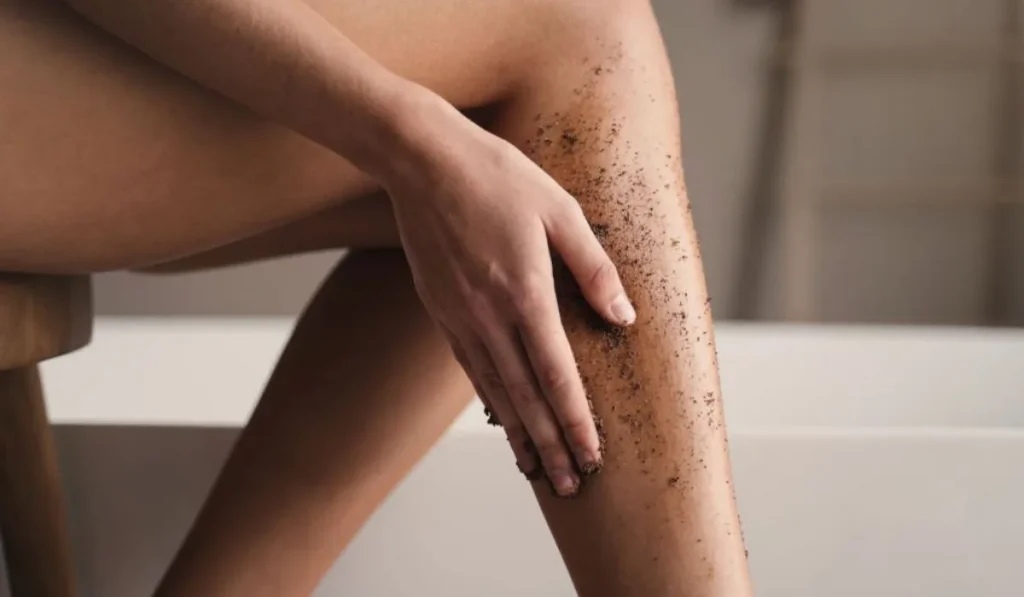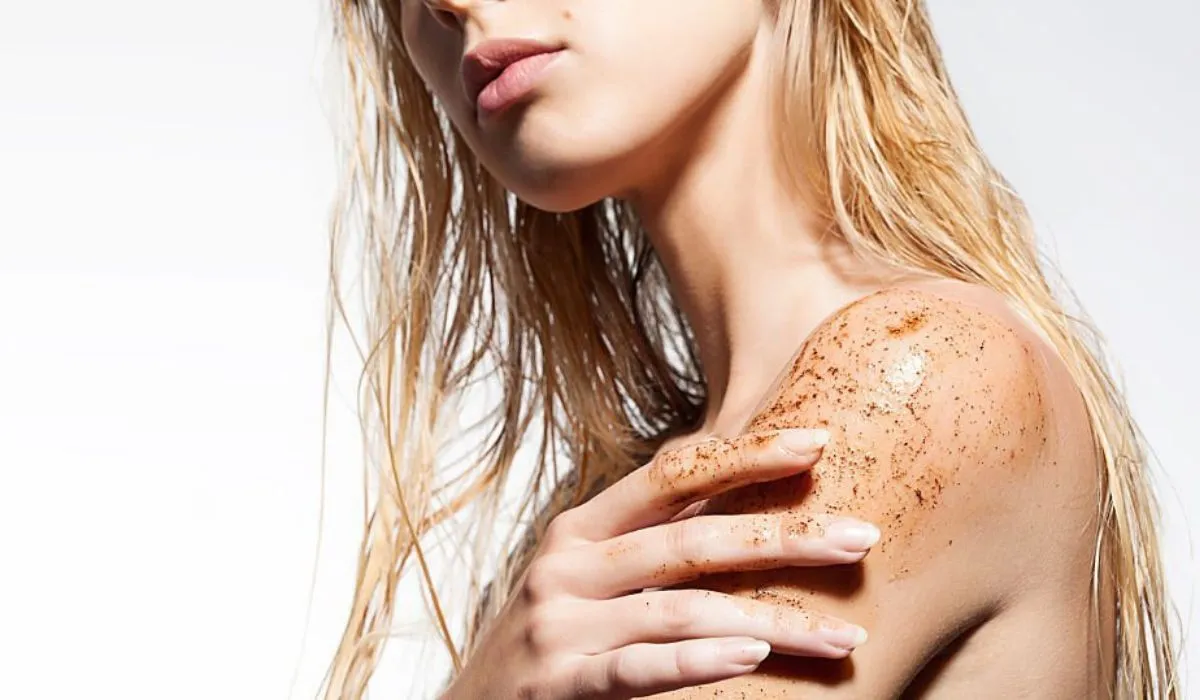Exfoliation is an important part of skincare routine as it removes dead skin cells, dirt, oil and impurities from the skin’s surface. Exfoliating the skin helps reveal fresh new skin, improves skin texture, increases blood circulation and allows better absorption of skin products. While the face is exfoliated regularly, the body skin also needs exfoliation to stay smooth and radiant.
Body exfoliators gently remove dead skin cells and rejuvenate the skin. But is it suitable for sensitive skin? This article provides an overview of body exfoliators, their benefits and precautions to take while using them, especially for sensitive skin.
What Are Body Exfoliators? How It Is Used?
Body exfoliators are products that help remove dead skin cells and impurities from the surface of the skin across the body. Body exfoliators come in forms of physical scrubs with granular particles or chemical exfoliators with alpha hydroxy acids that dissolve dead skin cells.

To use a body scrub, wet the skin first and take some product on your palm. Gently massage in circular motions over damp skin for few minutes. Focus on rough patches like knees, elbows and heels. Rinse with water and pat dry. Use 2-3 times a week for smooth glowing skin.
Chemical exfoliators require gentler handling. Apply a thin layer on clean damp skin and leave for few minutes before washing off. Use only 1-2 times a week. Do not scrub harshly.
Uses & Benefits Of Body Exfoliators
Regular use of body exfoliators provides multiple benefits:
- Removes dead skin cells, dirt, oil and impurities
- Reveals refreshed new skin and radiant complexion
- Improves skin texture making it soft and smooth
- Helps reduce ingrown hairs especially on thighs and bikini area
- Prevents body acne breakouts by clearing pores
- Helps improve uneven skin tone and lighten dark spots
- Improves circulation and stimulates blood flow
- Allows better absorption of body lotions and creams
- Makes self-tanning more effective and longer lasting
- Brightens dull-looking skin and adds a natural glow
Overall, body exfoliation gives you super soft and flawless skin from head to toe!
Is Body Exfoliator Suitable For Sensitive Skin?
Body exfoliators can be too harsh for sensitive skin. Signs of sensitivity include redness, itching, stinging sensation, dryness or flaking after use. People with conditions like eczema, rosacea and psoriasis have sensitive skin.
For sensitive skin, choose a gentle body exfoliator with rounded granules like jojoba beads rather than sharp walnut granules. Avoid body scrubs with artificial fragrances, dyes and alcohols that can irritate. Exfoliate gently once a week.
If physical scrubs cause irritation, try a mild chemical exfoliant like lactic acid or PHA with 5% or lower concentration. Do a patch test first. Or simply use a soft washcloth, loofah or dry brushing to remove dead skin. Always moisturize after exfoliating sensitive skin. Avoid taking steaming hot showers that strip natural oils. Look for products labelled ‘sensitive skin’ and do a patch test before full body use.
Read More:- Dry Skin? Eczema? Psoriasis? This Is A MUST Have!
Precautions And Tips While Using Body Exfoliators
Here are some precautions to take while using body exfoliators for better results and to avoid irritation:
- Do a patch test before first use to check for any reaction
- Cleanse and dry skin before exfoliating
- Use gentle circular motions. Do not scrub aggressively
- Focus more on rough, drier areas like knees, heels, elbows
- Rinse thoroughly after exfoliating to remove all residue
- Moisturize well after exfoliation to retain hydration
- Use a nourishing body oil or butter if skin feels too dry
- Exfoliate before shaving for a closer shave without irritation
- Use once or twice a week. Overexfoliating can damage skin.
- Avoid taking steaming hot showers right after exfoliating
- Be very gentle if using body exfoliator on face or delicate areas
- If any irritation occurs, stop usage immediately
- Not suitable for inflamed, irritated or broken skin
- Pregnant women should consult a dermatologist before using
- Store exfoliators in cool, dry place. Keep away from direct sunlight
Conclusion
Body exfoliators are effective in getting super soft and radiant skin from head to toe by removing dead cells, dirt and oils. However, body scrubs might be too harsh for people with sensitive and reactive skin. It is best to choose a gentle chemical exfoliant over physical scrub and do a patch test first.
Always exfoliate gently, rinse properly and moisturize well after use. Additionally, sensitivities, allergies and certain medications can also determine if body exfoliators can be used safely. When in doubt, consult a dermatologist first!
FAQs
1. How Often Should You Exfoliate Your Body?
For normal skin, 2-3 times a week is sufficient. For sensitive skin, limit to 1-2 times a week. Do not exfoliate daily.
2. Should I Exfoliate Before or After Shaving?
Exfoliate before shaving to prevent ingrown hairs and irritation. It allows a closer shave.
3. Which is better – Physical or Chemical Exfoliator?
For sensitive skin, chemical exfoliators with AHAs are gentler. But do a patch test. They can improve skin texture better when used properly.
4. What To Do If Body Exfoliator Causes Bumps or Rash?
Discontinue use immediately. Apply cold compress and topical corticosteroid cream if rash or bumps appear. See a dermatologist if it persists. Always do a patch test next time.
5. Is Body Exfoliator Same As Body Scrub?
Yes, body scrub is a form of physical exfoliator with grainy texture. Body exfoliator is the broader term including both physical scrubs and chemical exfoliants.

